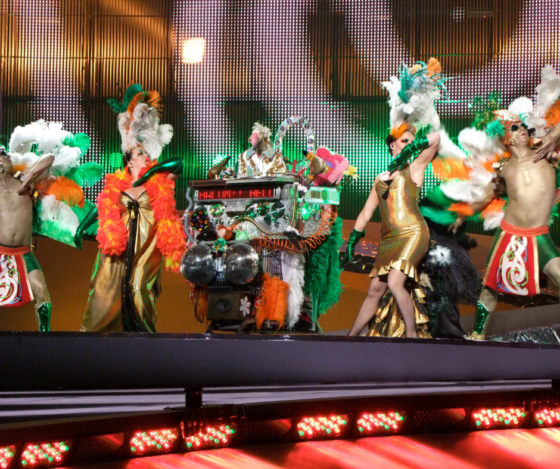Guide
The Worst Eurovision Songs Of All Time
Here I delve into the worst Eurovision songs of all time, examining what went wrong and why some performances have found their place in Eurovision notoriety for the wrong reasons.
Why Some Eurovision Entries Miss the Mark (The Worst Eurovision Songs Of All Time)
Before we get into the list, it’s important to understand what contributes to a disastrous Eurovision performance:
Lack of musical cohesion: Some songs are simply poor compositions—confused melodies, jarring transitions, or awkward genre clashes.
Unintentional comedy: Entries that were meant to be taken seriously but end up laughable due to awkward choreography, costumes, or staging.
Technical flaws: Off-pitch vocals, forgotten lyrics, or production mishaps can ruin even a well-written song.
Poor cultural resonance: Songs that fail to connect with the international audience—or worse, alienate them.
With over six decades of performances to choose from, narrowing down the worst Eurovision entries was no easy task. But these selections have become infamous, whether due to their artistic misfires or sheer baffling presentation.
Dustin the Turkey – “Irelande Douze Pointe” (Ireland, 2008) (The Worst Eurovision Songs Of All Time)
One of the most bewildering entries in Eurovision history. Ireland, a nation with a record-breaking seven Eurovision wins, sent a puppet turkey to represent them. Dustin the Turkey’s chaotic performance, filled with political satire and bizarre staging, failed to impress both the juries and the public. While intended as satire, it came across as unserious and messy—leading to a swift semi-final exit.
Why it failed: A novelty act that tried too hard to be funny but missed the mark entirely.
Todomondo – “Liubi, Liubi, I Love You” (Romania, 2007)
Sung in six languages, this Romanian entry had ambition—but not execution. The song attempted to unite Europe through love and music but came off as forced and cheesy. Clunky transitions between languages and over-the-top enthusiasm made this a multilingual misfire.
Why it failed: Well-intentioned, but musically incoherent and tonally confusing.
Scooch – “Flying the Flag (For You)” (United Kingdom, 2007)
The UK’s 2007 entry is often described as “camp gone wrong.” With airline-themed outfits, sexual innuendos, and forced choreography, Scooch’s performance was criticized for lacking sincerity and musical substance. The vocals were shaky and the performance bordered on parody—but without the cleverness.
Why it failed: Over-staged and under-sung. A cringeworthy attempt at camp pop that alienated audiences.
Dado Topić & Dragonfly – “Vjerujem u Ljubav” (Croatia, 2007)
Croatia’s entry in 2007 is often forgotten—but not because it was subtle. This awkward mix of Balkan rock and power ballad, led by mismatched vocal pairings, never found its groove. The performance felt dated and confusing, especially when compared to more polished acts.
Why it failed: Disjointed genre mash-up with little emotional or sonic appeal.
Telex – “Euro-Vision” (Belgium, 1980)
Belgium’s 1980 entry by synthpop group Telex is perhaps one of the earliest examples of Eurovision irony. The song was essentially a parody of Eurovision itself, with lyrics like “We don’t sing about girls or trees / We just sing about Eurovision.” While some critics now view it as subversively brilliant, at the time, it left audiences confused and unimpressed.
Why it failed: Too meta for its time—an entry that mocked Eurovision while being part of it.
Twiins – “I’m Still Alive” (Slovakia, 2011)
Slovakia returned to Eurovision with this painfully generic ballad. Although the Twiins had vocal talent, the song lacked originality and the performance was static and lifeless. Eurovision thrives on boldness—and this entry fell flat.
Why it failed: Forgettable in every way. Eurovision is no place for mediocrity.
Silvia Night – “Congratulations” (Iceland, 2006)
Silvia Night was a fictional character portrayed by Icelandic artist Ágústa Eva Erlendsdóttir. The satirical performance was intended to mock pop culture and celebrity narcissism—but much of the European audience didn’t get the joke. Silvia insulted the press, swore at producers, and sparked backstage controversies.
Why it failed: A polarizing character that blurred satire and rudeness, ultimately costing Iceland a spot in the finals.
Can Bad Songs Still Be Iconic? (The Worst Eurovision Songs Of All Time)
Fascinatingly, some of the worst Eurovision songs have evolved cult followings. “So-bad-it’s-good” performances live on and draw new admirers who enjoy the fun, anarchy, and controversy in the era of social media and YouTube.
In some cases, being bad at Eurovision is almost as memorable as winning.
Final Thoughts On The Worst Eurovision Songs Of All Time
These songs are a necessary component of Eurovision history even if their musical flaws. They capture the hazards artists expose when walking upon that famous platform. In a contest based on flamboyance and imagination, loss can be equally fascinating as winning.
- Deadline Review – Blackpink – Album Review - February 20, 2026
- The Romantic Review – Bruno Mars – Album Review - February 17, 2026
- Placebo Review | Villanelle | Single Review | 4/5 - February 13, 2026

